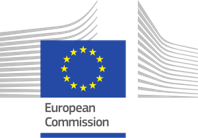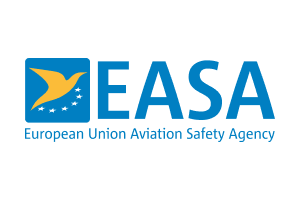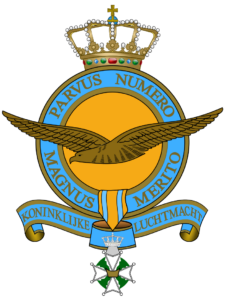In aviation operations, managing fatigue is essential as it diminishes an individual’s ability to perform almost all operational tasks. This clearly has implications for operational efficiency, but in situations where individuals are undertaking safety-critical activities, fatigue-effected performance can also have consequences for safety outcomes.
Fatigue can be caused by a wide variety of (combined) factors such as workload, night shifts, sleep debt or circadian disruption. Fatigue risk management and mitigation is therefore not straightforward. Instead, gaining thorough knowledge about the contributing factors in your organisation is essential in order to implement tailored and effective fatigue risk management strategies.
At the Royal Netherlands Aerospace Centre (NLR), we bring together workplace, organisational, regulatory and scientific expertise through an inspiring team of human factors, training and safety experts. Whether you need assistance in the identification of fatigue causes and subsequent hazards in your organisation, developing and implementing optimal work schedules, or FRMS optimisation through management and mitigation, our support is modular and, depending on your situation, can be tailored to your specific needs and preferences.
Choose the FRM module that fits your company’s needs
Scientific Analysis
to identify causes of fatigue
Extensive data collection studies to find fatigue hotspots and the underlying causes.
- Field studies to collect data on sleep, alertness, workload and performance
- Usage of bio-mathematical modelling, actigraphy and a mobile data collection app
- Fatigue report analysis
- Surveys and focus groups
Implementation
of optimised work schedules
Structural development, implementation and objective and subjective evaluation of optimised rosters.
- Evidence-based work-schedule optimisation and implementation
- Bio-mathematical modelling to predict the impact of the new schedules on fatigue and alertness
- Valid and reliable effect measurements of roster changes
Complete Support
in implementing FRMS throughout your organisation
Examination and selection of the appropriate FRM processes.
- Scanning the maturity and effectiveness of your FRM processes
- Set up and effective data collection and monitoring system
- Benchmarking on work limits and rest minima regulations
- Structural comparison of planned to actual rosters
- Fatigue awareness training for operational personnel and rostering/scheduling departments
- In-house workshops on fatigue identification and mitigation.
NLR can support you with
Regarding Fatigue Risk Management System (FRMS) we can help you in any phase of selection and implementation:
- Predictive FRMS: evidence-based, data-driven duty scheduling (e.g. using biomathematical models).
- Proactive FRMS: identification of fatigue causes and hazards through adequate, both subjective and objective fatigue measurement and monitoring, and/or innovative, population specific fatigue mitigation.
- Reactive FRMS: event investigation and subsequent effective management and mitigation measures.
Customers
We have extensive experience in Fatigue Risk Management solutions for the following domains:
Airlines
Airline crew schedules are typically irregular and involve duties that encroach the night, contributing to fatigue and thus an increased risk of human error. NLR supports airlines in improving the management of fatigue-related risks in a evidence based, tailored manner. The key aspects of this support include, data analysis, scientific research, regulatory compliance, training&education, and monitoring&evaluation.
Air Traffic Control (ATC)
The ATC work organisation requires individual Air Traffic Controllers (ATCOs) to work at times when they would normally be sleeping, exacerbating fatigue during working conditions that requires constant concentration and alertness. NLR has the experience and scientific knowledge to support authorities and Air Navigation Service Providers (ANSPs) in establishing the required duty limits compliant to the ICAO SARPS. We provide guidance on the implementation of both the prescriptive and performance-based approaches of fatigue management.
Air force / military operators
Both during training and actual combat, it is essential for military operators to maintain as vigilant and alert as possible. Different types of military operators (such as fighter-, helicopter-, drone and transport pilots, but also loadmasters, and sensor operators) need optimal sleep opportunities and fatigue mitigation to perform at their optimal level. NLR improves the management and mitigation of fatigue-related risks in military operations of Air Forces by means of implementing the required capabilities, operational experience, and a tailored fatigue management program.
Other sectors
Our institute has been involved in a wide variety of human factors related projects (both b2b and within European research consortia) outside aviation as well. Predominantly in other transport related domains such as road, water, and rail transportation, but also in control room work environments. Since both fatigue related hazards and procedures are quite similar, we are keen to apply our knowledge on these, or other, sectors in which employees are exposed to irregular or long working hours, (night) shift schedules and/or circadian disruption.




Independent Research
NLR plays a vital role in advancing the understanding of operator fatigue, particularly in aviation and aerospace, through performing independent research as well. NLR collaborates with major aviation organizations, regulatory bodies, and research institutions worldwide. Notable recent projects led by NLR include the Flight Time Limitations Effectiveness studies (FTL1 and FTL2.0) and the EASA ATCO fatigue study. By leveraging its research expertise and international collaborations, NLR contributes to the development of evidence-based solutions for managing human fatigue in aviation and aerospace, enhancing safety, efficiency, and performance.

